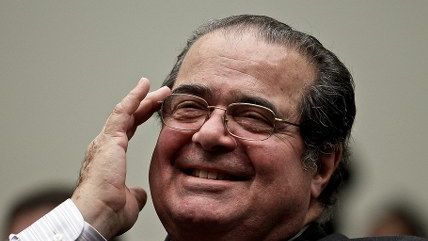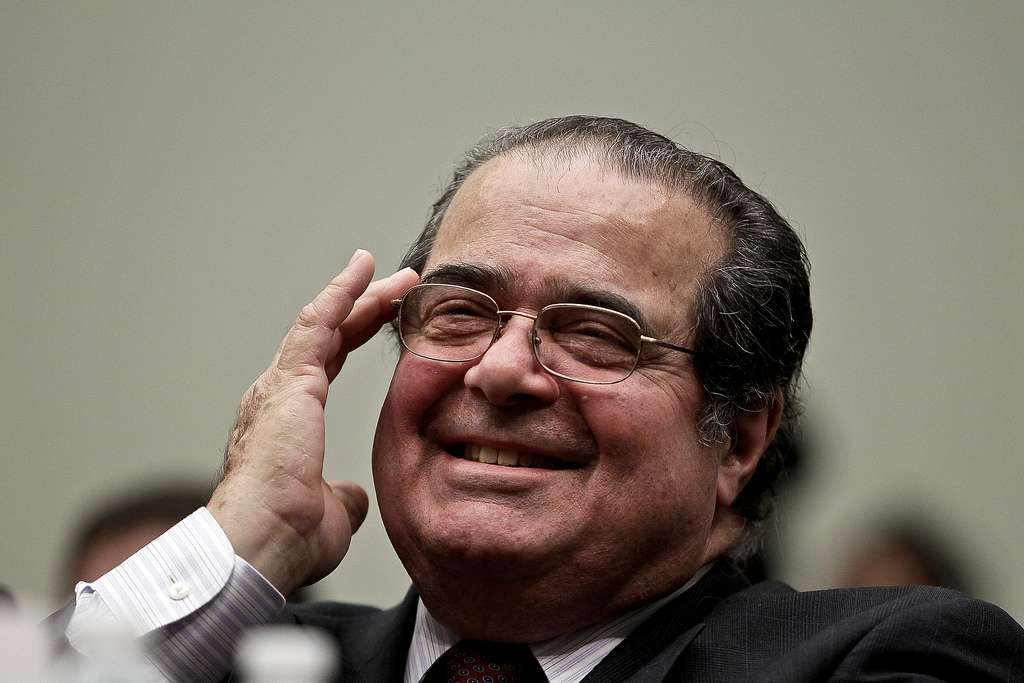GOP Presidential Candidates Agree: Obama Shouldn't Nominate Scalia's Replacement
President says he's going to try anyway.


Right before tonight's Republican primary debate began (yes, there's another one), President Barack Obama took to the airwaves to say some kind comments about the career of conservative Supreme Court Justice Antonin Scalia, who died earlier today at the age of 79: "He will no doubt be remembered as one of the most consequential judges and thinkers to serve on the Supreme Court."
Obama also said that he will nominate a replacement for Scalia, despite his term coming to an end and despite having a Republican legislature that is not very interested in playing ball.
At the debate, and prior to the debate in public statements, the GOP candidates all agree (for obvious reasons): the president should not attempt to replace Scalia and leave the nomination to his successor.
The Washington Post took note of the pre-debate comments and folded in the comments on stage, as dealing with Scalia's death was the very first question:
Donald Trump said in Saturday's Republican presidential debate in South Carolina that if he were president now, he would try to nominate a successor for deceased Supreme Court Justice Antonin Scalia, but he said it is incumbent on Republican Senate leaders to prevent the confirmation of President Obama's eventual nominee.
"I think it's up to Mitch McConnell and everyone else to stop it. It's called delay, delay, delay," he said.
Other candidates at the debate said that Obama should not nominate a new justice, praised Scalia's service on the court and urged a conservative replacement.
"Barack Obama will not have a consensus pick," said former Florida governor Jeb Bush.
"I just wish we hadn't run so fast into politics," said Ohio Gov. John Kasich.
Kasich said that if Obama were to nominate a justice, he would prefer somebody that is likely to get unanimous support. But since that is not likely to happen, he would prefer the president to decline and leave it to his successor.
Cruz presented the possibility of Obama selecting Scalia's replacement as a grave threat to conservatism, suggesting that America is just "one judge away" from overturning state restrictions on abortion, overturning individual gun ownership rights from the Heller decision and threatening religious liberty.
Hillary Clinton was predictably aghast at the idea that Obama should not nominate Scalia's replacement:
"The Republicans in the Senate and on the campaign trail who are calling for Justice Scalia's seat to remain vacant dishonor our Constitution," she continued. "The Senate has a constitutional responsibility here that it cannot abdicate for partisan political reasons."
But they can just vote "no" for partisan political reasons, and that seems very likely to happen. Obviously Clinton had to say that, not just for the party and for the president but for her campaign that embraces Obama's legacy.
But in reality, politically, Clinton just got handed a huge tool to get out the vote, and assuming she is able to hold off Sen. Bernie Sanders and his supporters, she's going to need it. How many times have we heard this election cycle that the next president will select three or four Supreme Court justices? How many times have we heard it just today? It's no longer an abstract nudge. It's happening right now. So if Obama is not able to get a nomination through the Senate, Clinton will get to make the same argument as Cruz from the opposite direction in order to get voters who may not find her the most inspiring of choices to reluctantly go to the polls. As Cruz made clear at the debate tonight, certainly he's definitely going to use it motivate voters.


Show Comments (319)